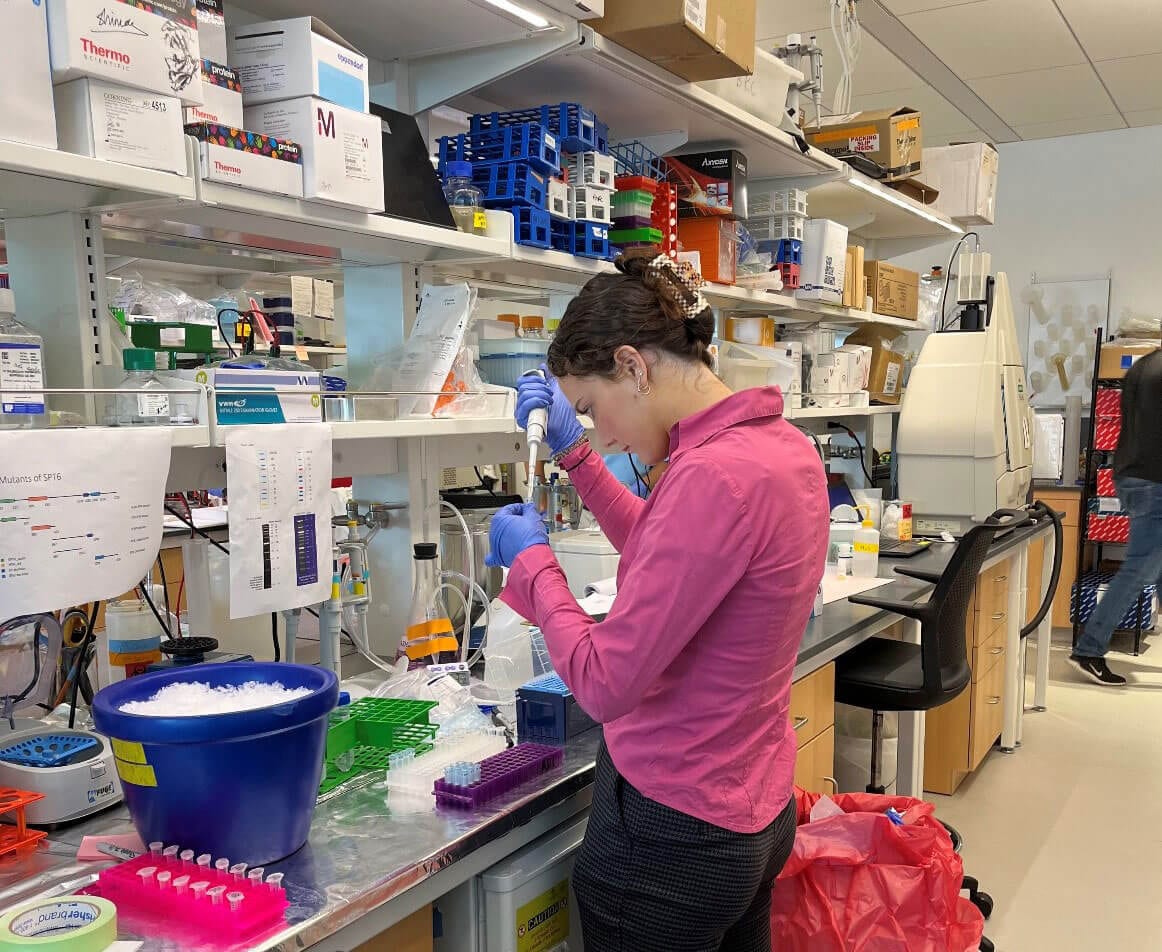
Why You Should Consider Academic Research

Typically, people interested in science are immediately asked if they’re pre-med. The conversation normally goes something like this:
Them: “What’s your major at ND?”
Me: “Biological Sciences!”
Them: “Oh my gosh, that’s awesome. Are you pre-med?”
I plan on pursuing a PhD post-grad, and I strongly believe more attention needs to be drawn to academic research. People paint this picture of those in research as highly introverted, antisocial, and uber-competitive. While I can’t universally disprove this rhetoric, I’m here to make you think twice and to share why I personally love biological research.
Find The How and The Why
Biology is the study of living organisms. When you think about it, we, as humans, have millions of little molecular machines going nonstop, keeping us alive, regulated, and energized. Studying for an exam within one of the areas of biology is one thing. Performing research to uncover a new truth in the field is another challenge entirely. Not only must you completely understand all the fundamental concepts related to your field of work, you must think innovatively and creatively about very complex ideas. Rather than the “what” of biological processes, you begin to consider the “how” and the “why.” Why is this family of genes expressed in these conditions but not in those conditions? How could this protein play an instrumental part in this unknown signaling pathway?
It Takes Intense Focus
Biological research has a degree of attention to detail that I had never previously experienced. You cannot space out for even one moment in the lab because you'll forget which reagent you put in which sample so far, label something wrong (which then can ruin weeks of work) or contaminate thousands of dollars of reagents. Yes, I’m speaking from experience–I’ve done all of the above. It takes mental stamina and experience to apply the highest levels of critical thinking and attentiveness for many hours at a time.
There Is Always Room for Improvement
In addition to abstract thinking, an endless skillset accompanies biological research. As soon as I begin feeling comfortable with one procedure, I’m expected to multitask that procedure with two or three new ones, jumping on incubation periods of 10-15 minutes as an opportunity to make progress on my other experiment. The other side of that coin, though, is that there is always more to learn. Much of the results of my experiments are quantifiable data–results that are good or bad. I find it a fun challenge to always try to improve my performance on an experiment compared to my previous attempt (less background signal, higher DNA concentration, faster speed, etc.).
Think Beyond the Stereotype
If you like science, research can be a very fun, stimulating way to apply your passion and knowledge to push the medical field forward. Though researchers rarely get much credit, they are the reason our medical treatments continue to improve so rapidly over time. And as for the stereotypes I mentioned earlier, my lab is full of very social people. We have happy hour, networking events, and occasionally take a quick break to walk to the farmers’ market together. We are collaborative, and every member of the lab contributes to others’ work in a meaningful way.
If you are interested in getting started in academic research on your campus, talk to professors to learn more about the process. Explore academic departments that interest you. Reach out to current classmates involved in academic research for ideas on how they discovered their research opportunities.
Do you have a compelling story or student success tips you’d like to see published on the Pearson Students blog? If you are a college student and interested in writing for us – click here to pitch your idea and get started!
About the author

Maeve Murdock
Maeve Murdock is a student at the University of Notre Dame majoring in Biological Sciences with minors in Science, Technology, & Values (STV) and Innovation & Entrepreneurship. She is planning to pursue a PhD in molecular genetics post-grad and is interested in entrepreneurial endeavors in the biotech industry following grad school. In her free time, Maeve loves to hike, read, play tennis, and socialize! She is also the Pearson Campus Ambassador at Notre Dame.


